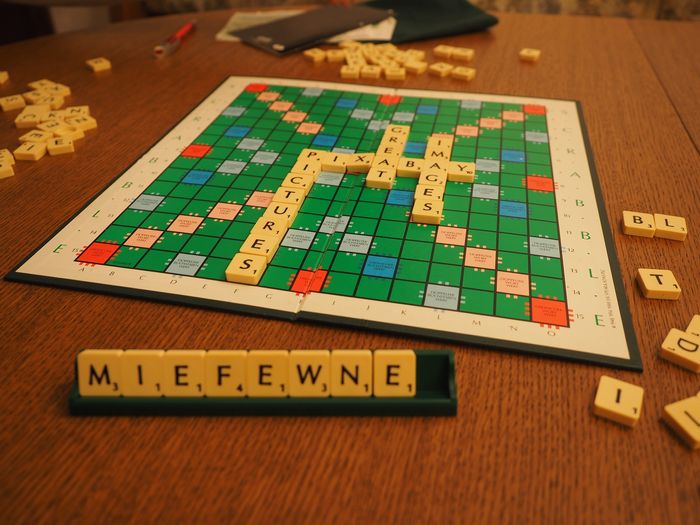A New Version of Scrabble

Mattel, the major game and toy-making company, has a new version of the classic board game, Scrabble. The new version, Scrabble Together, is more collaborative and accessible than the original.
In the original Scrabble, players try to form a word from a group of letter tiles that they draw at random. Tiles are placed on a board so that they connect and share letters with previously played words. Each letter is worth a different amount of points, and the goal of the game is to get the most points. There are also bonuses that can multiply the value of certain letters or entire words.
In the new game, players can work in teams, and instead of getting the most points, the winner is the player or team that completes 20 word-related challenges. According to Mattel, the new game is more likely to appeal to Gen Z and Millennials, who are less competitive than previous generations.
Scrabble, invented in 1938 by Alfred Mosher Butts, was originally called Criss-Crosswords. Butts was unable to sell the game to a major game company and made just a few copies. A decade later, an owner of one of those few copies saw its potential, and began producing it under the new name Scrabble, with a royalty on each unit going to Mr. Butts. The game took off in 1952 when the president of the Macy’s Department Store played the game and decided to stock it.
The new game comes packaged together with the original version (the board is double-sided), and it is currently available outside of the United States and Canada. Because the rights for the game of Scrabble are held by Hasbro in the two countries, Mattel cannot sell the new version there.
Source: cnn.com, bbc.com, wikipedia.org
For source links, see the article on ESLNewsStories.com
Audio
Hear the article spoken:
Useful Language
- Collaborative (adj) - done by people working together
- Accessible (adj) - easy to understand and use
- Tile (n) - a small flat piece made of plastic, cardboard, or wood that is used for playing games
- Royalty (n) - money that is paid to a person who created something each time it is sold
- Stock (v) - to keep a supply of a product to sell
- Take off (phr. v) - to quickly become popular
- Double-sided (adj) - has two sides that can be used
- Rights (n) - the legal authority to sell, publish, or perform a work
Discussion
Discuss the following questions with your partner(s).
- What did you think about this story? Was there any surprising information?
- Did you know about Scrabble before reading this article? Have you played it? If not, would you like to give it a try?
- Do you have a big vocabulary in your first language? How did you learn all the words that you know?
- Do you like words? How can words be interesting?
- Have you played many board games? Talk about a game that you played.
- Classic department stores like Macy’s are becoming fewer and fewer. Why is this?
- Imagine you are receiving royalty payments. What did you create that keeps earning you money?
- Mattel has several famous brands. Can you name a toy or game that they produce?
- In the board game’s success, how important was the name change to Scrabble?
- Would you describe yourself as competitive? How important is winning to you?
- Do you agree that Gen Z and Millenials are less competitive than previous generations? Are there other differences between the generations that you can think of?
- Do you prefer working in a team or going it alone?
- Was it a good idea to make a new version of Scrabble? What’s wrong with just keeping the original?